Abstract
The inability of many clinical decision-support applications to integrate with existing databases limits the wide-scale deployment of such systems. To overcome this obstacle, we have designed a data-interpretation module that can be embedded in a general architecture for protocol-based reasoning and that can support the fundamental task of detecting temporal abstractions. We have developed this software module by coupling two existing systems--RESUME and Chronus--that provide complementary temporal-abstraction techniques at the application and the database levels, respectively. Their encapsulation into a single module thus can resolve the temporal queries of protocol planners with the domain-specific knowledge needed for the temporal-abstraction task and with primary time-stamped data stored in autonomous clinical databases. We show that other computer methods for the detection of temporal abstractions do not scale up to the data- and knowledge-intensive environments of protocol-based decision-support systems.
Full text
PDF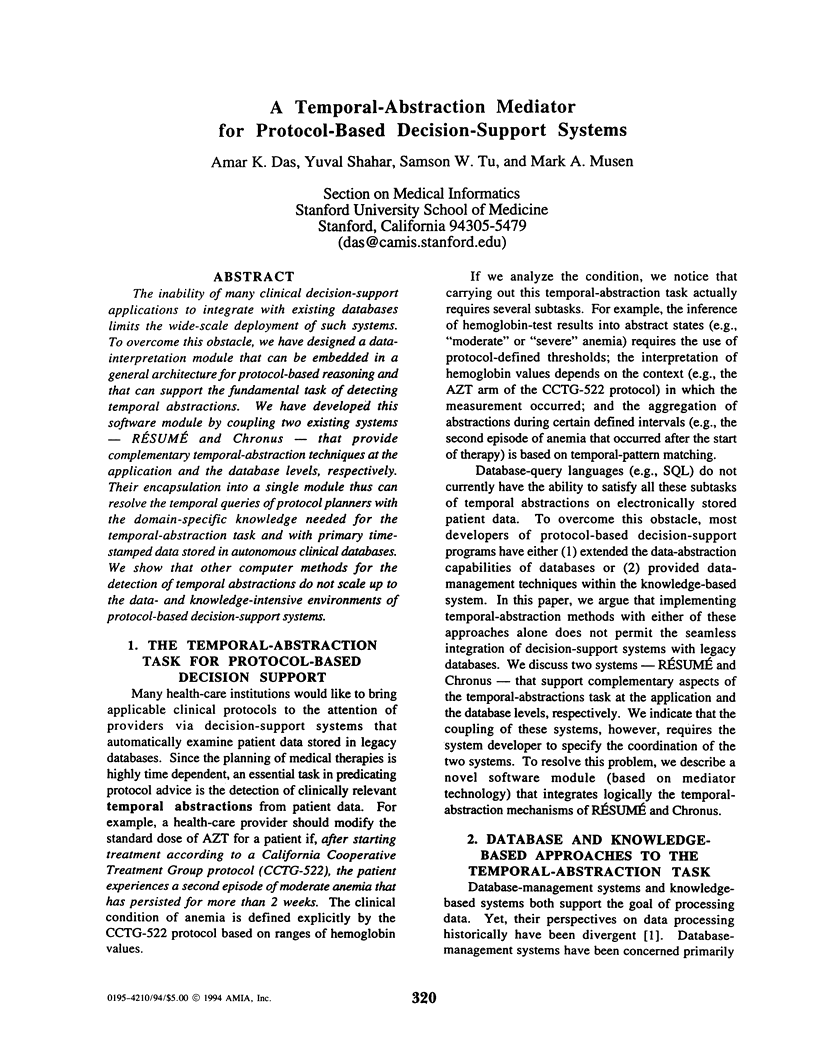
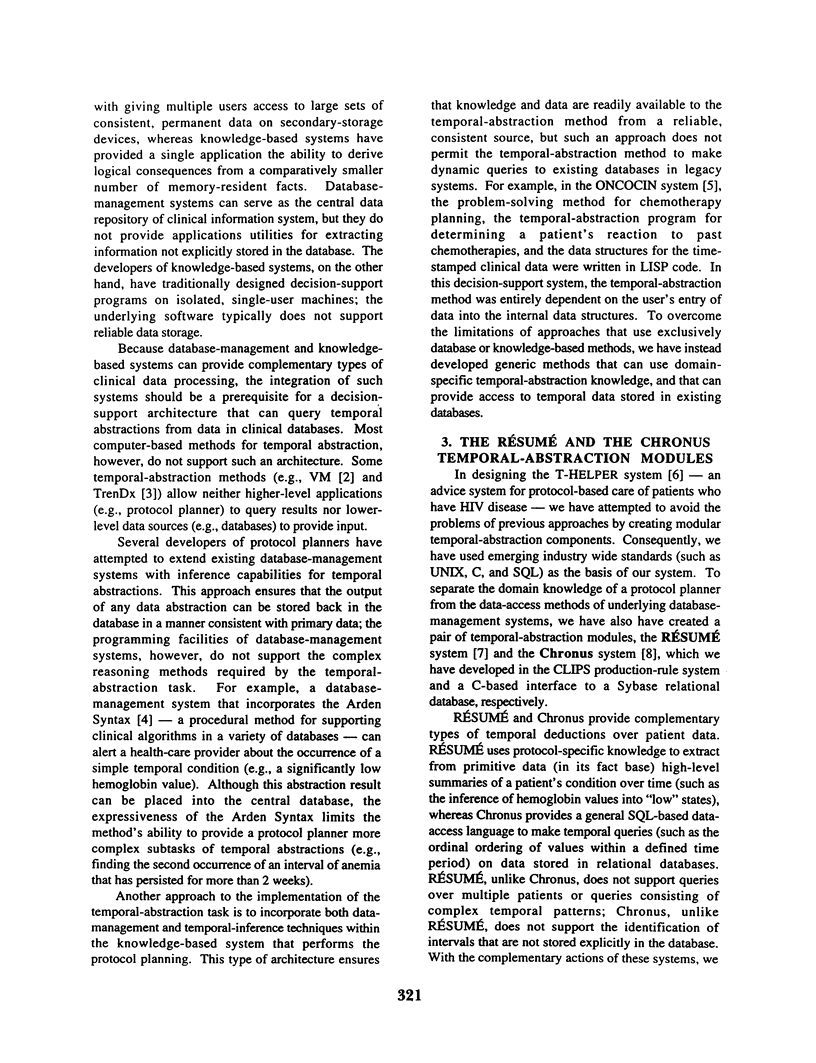
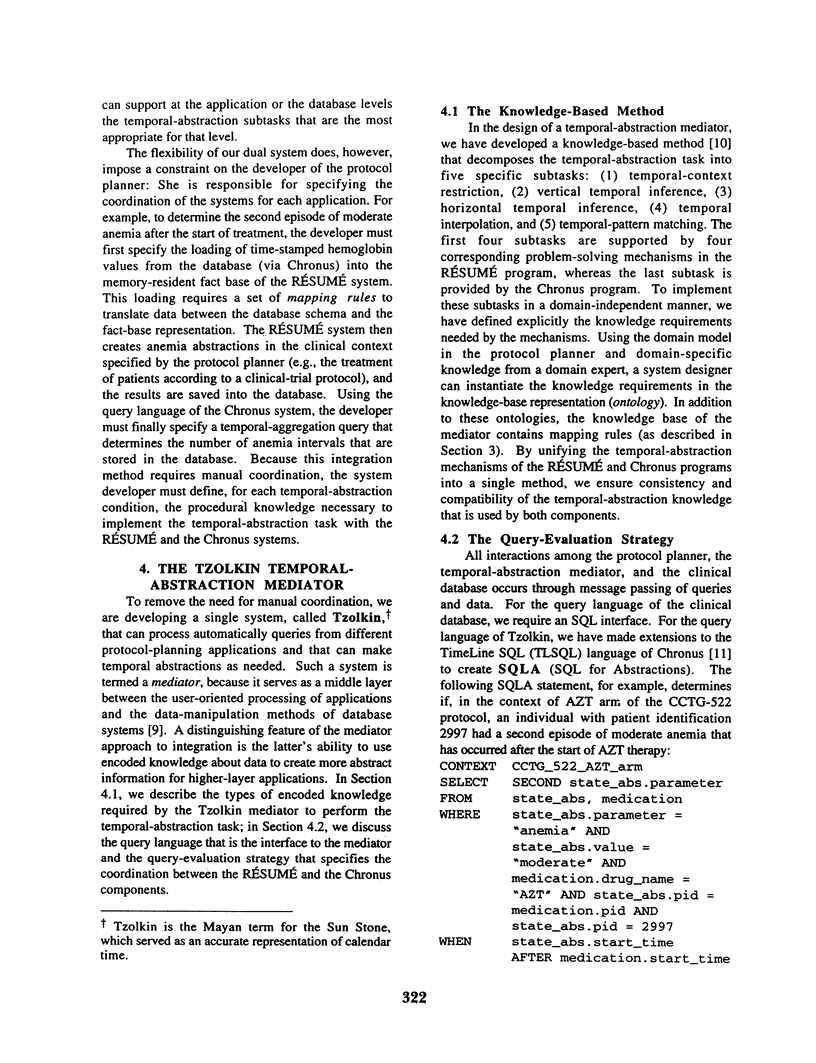
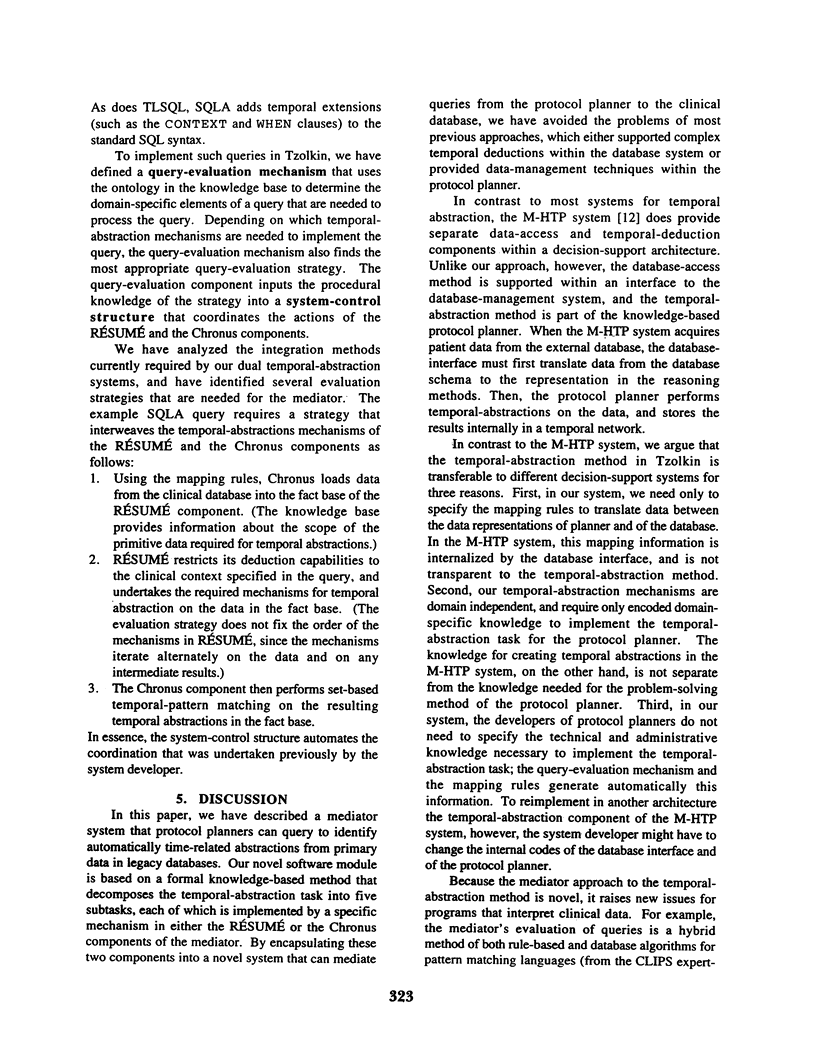
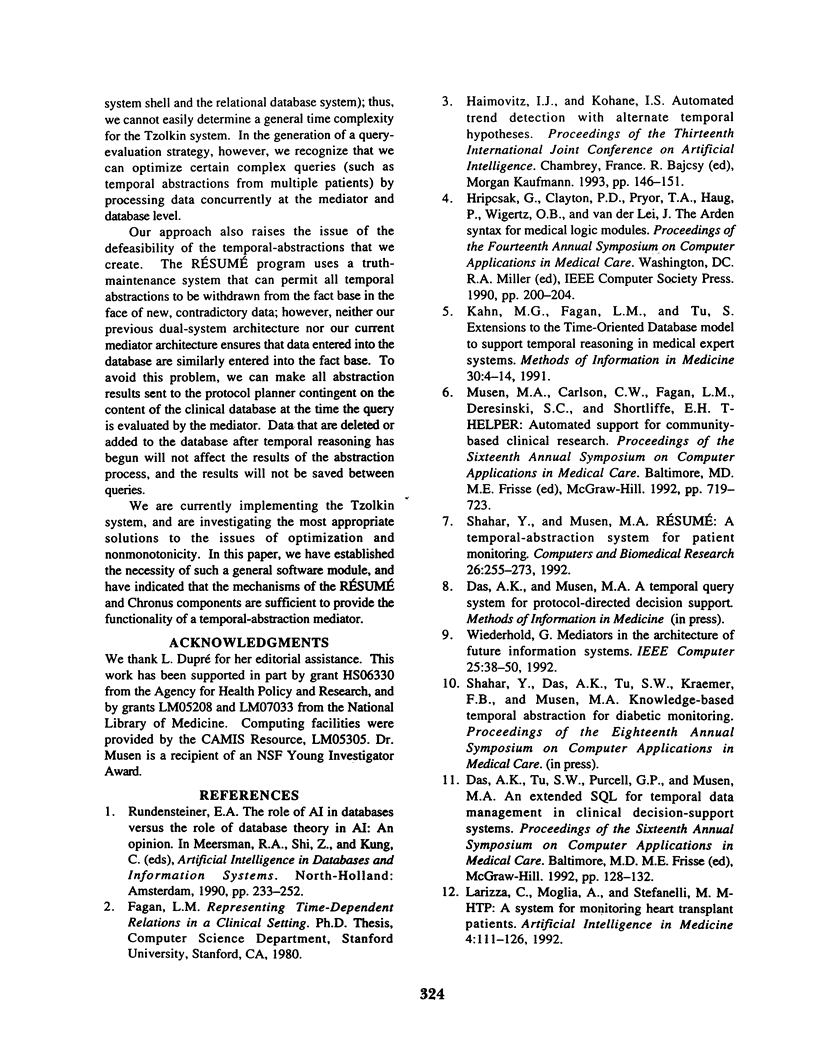
Selected References
These references are in PubMed. This may not be the complete list of references from this article.
- Kahn M. G., Fagan L. M., Tu S. Extensions to the time-oriented database model to support temporal reasoning in medical expert systems. Methods Inf Med. 1991;30(1):4–14. [PubMed] [Google Scholar]
- Shahar Y., Musen M. A. RESUME: a temporal-abstraction system for patient monitoring. Comput Biomed Res. 1993 Jun;26(3):255–273. doi: 10.1006/cbmr.1993.1018. [DOI] [PubMed] [Google Scholar]


